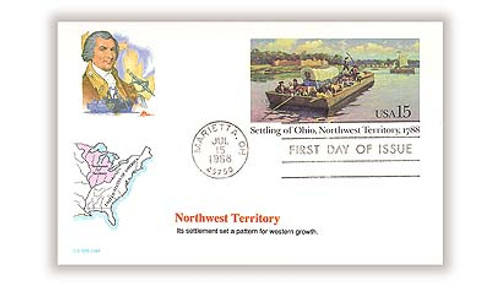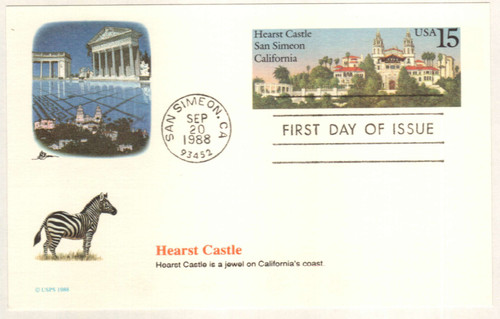
# UX124 - 1988 15c Postal Card - Northwest/Ohio Territory
Collect Fun First Day of Issue Postal Cards with Cachets
Postal cards are postal stationery with an imprinted stamp signifying the prepayment of postage. This one includes a First Day of Issue postmark and specially designed cachet to complement the imprinted stamp topic. Highly collectable, it would make a great complement to your stamp or cover collection.
The History of U.S. Postal Cards
The US Post Office Department issued its first postal card in 1873 with an original rate of 1¢. The stamp imprinted stamp was a brown image of Liberty inside an ornate oval frame. Modern US postal cards often have imprinted stamps with full-color designs.
Today, over 370 different US postal cards have been issued. Collecting them is a fun part of the world's greatest hobby. Add this one to your collection today.
Collect Fun First Day of Issue Postal Cards with Cachets
Postal cards are postal stationery with an imprinted stamp signifying the prepayment of postage. This one includes a First Day of Issue postmark and specially designed cachet to complement the imprinted stamp topic. Highly collectable, it would make a great complement to your stamp or cover collection.
The History of U.S. Postal Cards
The US Post Office Department issued its first postal card in 1873 with an original rate of 1¢. The stamp imprinted stamp was a brown image of Liberty inside an ornate oval frame. Modern US postal cards often have imprinted stamps with full-color designs.
Today, over 370 different US postal cards have been issued. Collecting them is a fun part of the world's greatest hobby. Add this one to your collection today.









